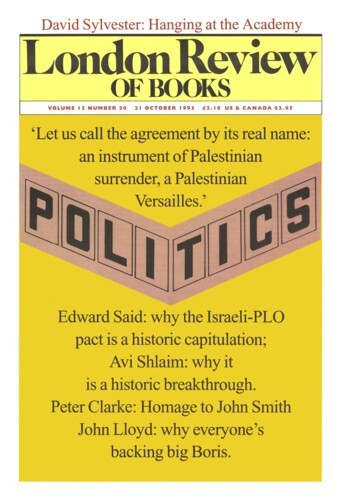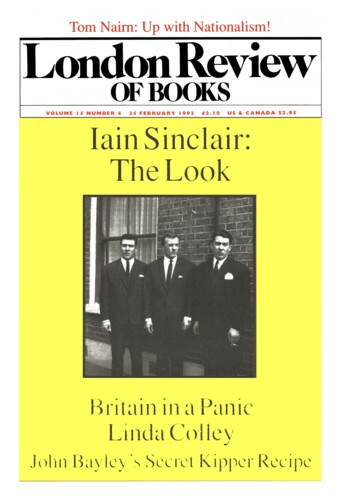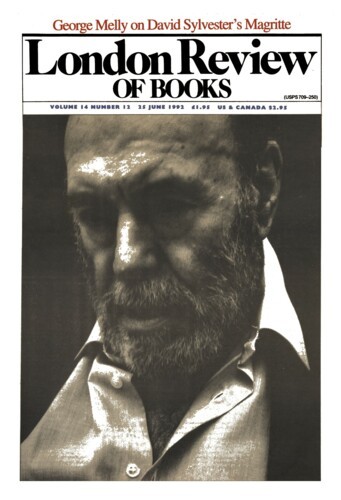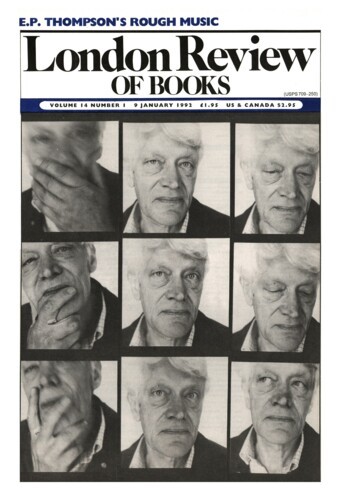Arafat’s Camel
Avi Shlaim, 21 October 1993
Despite all its limitations and ambiguities, the Declaration of Principles for Palestinian self-government in Gaza and Jericho marked a major breakthrough in the conflict between Arabs and Jews in Palestine. In one stunning move, Arafat and Rabin have redrawn the geopolitical map of the region.




